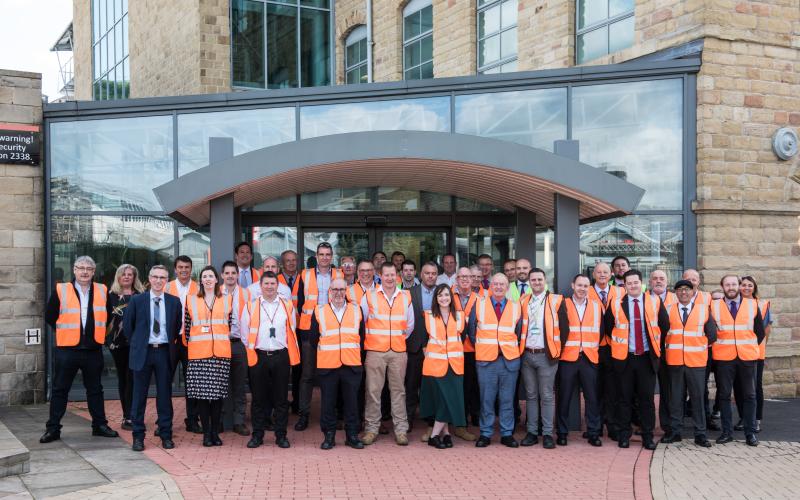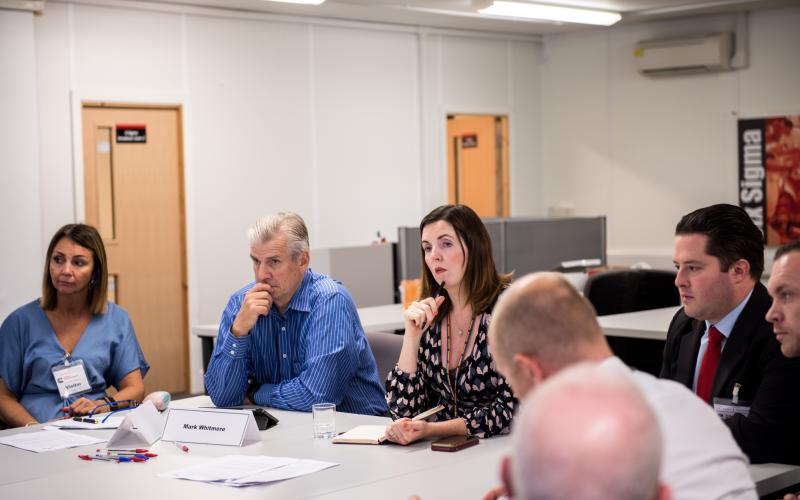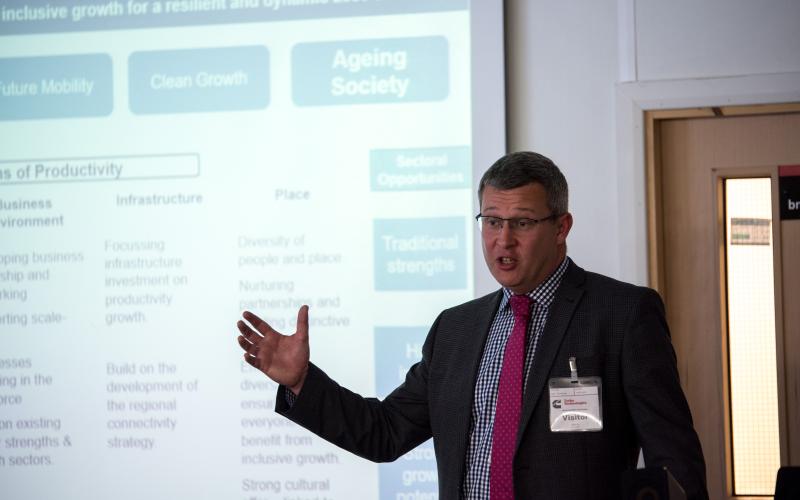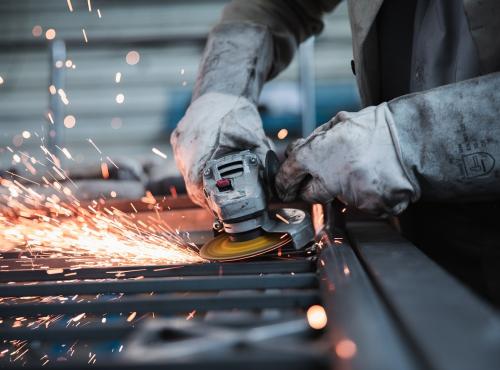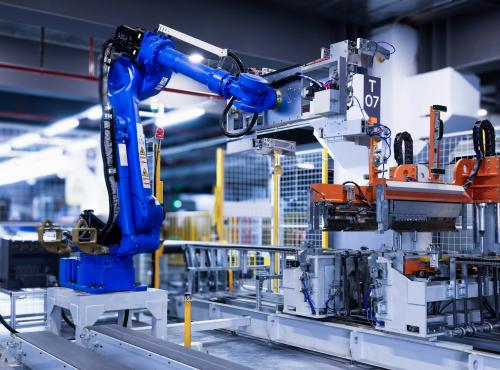Manufacturing Commission holds second regional LIS evidence session
On Friday 13th September, the Manufacturing Commission held its second evidence session in the Local Industrial Strategy Inquiry at Cummins Turbo Technologies in Hudderfield The session brought together policy makers and manufacturers to discuss how the LIS can best support manufacturing.
Barry Sheerman opened the event by welcoming attendees to Huddersfield and re-iterating his views regarding the importance of manufacturing to the British economy. He noted the role of the APMG and Policy Connect in providing an effective way to bring together industry and parliamentarians. He expressed the Group’s support for the Industrial Strategy, as well as the importance of it at the local and regional level. He noted that the inquiry process had met previously in Loughborough to consider the industrial strategy in the Midlands, with the current session doing the same for Yorkshire. He added that all matters arising from the inquiry would be promoted to senior parliamentarians, both in Government and Opposition. Finally, Mr Sheerman said that, despite the evolving nature of manufacturing and its decline as a percentage of the workforce, the value of the sector continues to be world-leading. He commended Cummins as a proactive and engaged part of Huddersfield’s economy and wider society.
Ian Smyth then spoke on behalf of the West Yorkshire Combined Authority and the Leeds City Region on the local industrial strategy for the region. He said that the LIS would be a locally produced, evidence-based plan to drive productivity improvements, and one that supported long-term, evidence-based strategic decisions on majority investments which would support local growth. He said that the WYCA had engaged strongly with Government Departments, with BEIS being the key relationship, but also including other stakeholders in Whitehall, such as DCMS with regard to accelerating the roll-out of highs-speed broadband and cultural initiatives, flood protection with DEFRA, and placemaking with the Ministry for Housing and Local Government.
Mr Smyth also said that the WYCA would also engage positively with the Grand Challenges, but that some would be more applicable to the area than others. The region would select the two most likely to boost productivity and drive clean and inclusive economic growth by 2030. The three cross-cutting themes are:
- Zero Carbon Economy - with a view to making the region carbon-neutral by 2038
- Boosting Inclusive Growth - ensuring that the economy works for all members of society
- Digital Technology - ensuring that digital is treated as a holistic element of the economy, affecting all components within it.
The LIS for the Leeds City Region is expected to be submitted to Government by the end of 2019, and published in Spring 2020. The headlines from the evidence focused on the need to be distinctive and applicable to regional strengths. Mr Smyth said that one of the challenges facing the area is down to their large and diverse geography, “we are the most average region in the country, but that makes us a microcosm for the UK as a whole.” He highlighted the large number of SMEs in the region, as well as Leeds’ position as one of the country’s leading finance hubs. He noted Leeds significant and widening productivity deficit with regard to the UK as a whole, something that had increased since the banking crisis. However, he added that the LCR was also a hub for manufacturing - especially in Barnsley, Bradford, Kirklees and Wakefield. The manufacturing sector was also one of the areas with the highest level of productivity for the region, although it was still behind the UK average. With regard to exports, Mr Smyth noted the strength of the chemicals as a key commoddity, as well as the size of scale-ups. The key challenge facing the WYCA was the skills gap, with 20 percent of businesses claiming to be affected by it. There was a particular demand for digital skills, especially for the financial and professional services sector.
With regard to the Grand Challenges, Mr Smyth expressed a view that AI and Data and Aging Society represented the most likely priorities for the region, with traditional strengths in areas such as textiles and a high concentration of universities.
When questioned about the reasons for the LCR’s low productivity, Mr Smyth said that the structural issues facing the region were a key reason for this, especially the relatively low level of skills training by numerous companies. He added, however, that the gradual rise in more productive sectors such as culture (with the announced move of Channel 4 to Leeds) and R&D initiatives such as the Advanced Manufacturing Park in Sheffield. He noted that the WYCA was also investigating the challenges posed by automation and the loss of low-skilled roles, and reiterated the need to bring in new career pathways. He also said that the Apprenticeship Levy was an area of particular criticism but that the region was keen to see more devolution and regional say over how its implementation.
Paul O’Donnell from the MTA gave some brief remarks regarding the manufacturing supply chain and productivity. He said that the circular nature of the sector tended to understate the size of manufacturing within the British economy. Including design firms and software companies alone would bring the sector of the economy up to around 16 percent.
In the panel discussion, Alex Robinson from Made in Yorkshire highlighted the large concentration of SMEs as being a unique characteristic of the region, whilst Barry Sheerman noted the need for closer relationships between universities and local firms. Ben Carpenter Merritt concurred with this assumption, highlighting the importance of developing better links as noted in the Networks of Excellence seen in the East Midlands. Barry Sheerman then moved onto the need to improve approaches to clean growth. Paul O’Donnell from the MTA and Ian Smyth both discussed the ways in which to engage with more universities, but added that such initiatives needed to take part on a cross-boundary basis, such as working with the Sheffield City Region with initiatives such as Advanced Manufacturing Centre.
Bill Macbeth from the Textile Centre for Excellence highlighted the Made Smarter review as being a positive development in discussions about manufacturing and the role for digital technology in improving productivity and sustainability. He highlighted the uneven nature of devolution as representing one of the key challenges, with the resources available to the North West to promote a local review as being considerably higher than those given to the Leeds City Region. Ben Carpenter Merritt added that this asymmetric nature of devolution as being a key challenge, a point reiterated by Paul O’Donnell. Barry Sheerman likewise added the lack of a coherent Yorkshire-wide association of local and combined authorities as presenting a challenge for a regional approach to developing an industrial strategy.
Following the panel, attendees enjoyed a tour of the excellent site before splitting into two groups to discuss key areas on which the LIS should focus.
A short regional report will be written based on the evidence gathered and this will feed into a larger report which will launch in Parliament in November.
